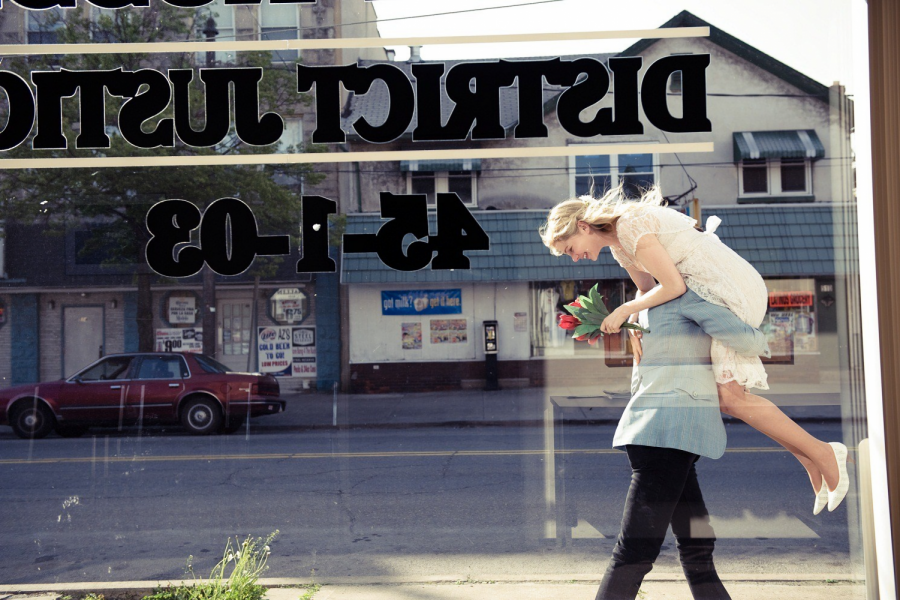Theme of the Month: Love
January 23, 2019
Theme of the Month is an article series designed to investigate the best examples of film, television, and writing that fall under a certain category. These works tackle their own ideas of love and the forms it can take.
“Blue Valentine”
“When I was a child I had two nightmares — nuclear war and my parents’ divorce. This film confronts the second fear.”
It is this revelatory quotation, spoken by writer-director Derek Cianfrance, that hits so close to the homes of those who have seen “Blue Valentine.”
The film follows young couple Dean and Cindy, played by Ryan Gosling and Michelle Williams respectively, as they navigate the rocky path of love. The only catch: Cianfrance jumps back and forth between their happier early days and their strained marriage a few years later.
Its themes are both simple and complex. The core idea, falling out of love is easy to understand, but the why of the relationship’s deterioration does not have as easy an answer. Was it the strain of raising a child? Cindy’s unsupportive father? Does it really even matter?
There isn’t much to say about “Blue Valentine” except for testifying its authenticity. Gosling and Williams lived together in preparation for their roles, and it shows; the chemistry between them is believable and tangible in every scene, whether it’s with Dean singing a love song or Cindy leaving their car to find peaceful isolation.
Some may criticize the ending for being anticlimactic, but on a second watch, it becomes clear that this was intentional. The film, and their love, ends: unfinished, ugly, and beautiful.
Watch the (spoiler-free) trailer here.
“Sundays and Cybèle”
Young war veteran Pierre befriends a parentless child named Cybèle, posing as her father in order to free her from her orphanage every Sunday. As Pierre’s friends and neighbors misinterpret his intentions, the film heads steadily toward tragedy.
It should be no surprise that “Sundays and Cybèle” has been criticised for its subject matter. What is surprising, though, is that these takes on the film only started with its rediscovery; in 2014, no less than the AV Club said that the core relationship is “icky” and its presentation “toxic.”
In reality, the relationship between the two leads is completely platonic and is not as black and white as one is led to believe. Pierre acts as a father and compatriot to Cybèle- a child who is completely bare of adult role models in her life.
What makes this movie even more of an oddity is director Serge Bourguignon’s disappearance from the scene despite initial critical acclaim, as well as taking the Academy Award for Best Foreign Language Film. Bourguignon went on to direct only a handful of more features, all of them commercial flops.
“Sundays and Cybèle” does not provide all of the narrative solutions the audience is looking for. But as a tragic and methodical character study, it is undeniably effective.
“In the Mood for Love”
A man and a woman discover their spouses are embroiled in an affair and slowly begin to fall in love themselves, but refuse to stoop to such a low level.
Wong Kar-wai is well-known in the international film scene, and for good reason. His movies are typically very stylish in presentation, with bold, vivid colors dominating every frame and often explore feelings of loneliness.
“Days of Being Wild,” “Chungking Express,” and in this case, “In the Mood for Love,” feature themes of longing for love; while the films’ settings rarely reflect our own, the emotions they convey are universal.
The use of music is also instrumental to the film’s overall tone. From the jazzy Spanish slurring of Nat King Cole to the plucky, melancholic tune of “Yumeji’s Theme,” the score is in and of itself something to marvel at.
For all of its intoxicating cinematography and alluring music, however, “In the Mood for Love” is best remembered for its heartbreaking portrayal of repressed love.




